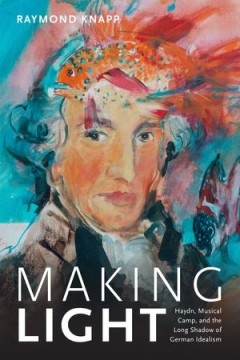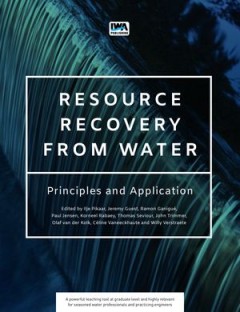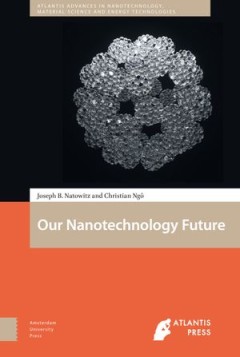Filter by

Making Light: Haydn, Musical Camp, and the Long Shadow of German Idealism
In Making Light Raymond Knapp traces the musical legacy of German Idealism as it led to the declining prestige of composers such as Haydn while influencing the development of American popular music in the nineteenth century. Knapp identifies in Haydn and in early popular American musical cultures such as minstrelsy and operetta a strain of high camp—a mode of engagement that relishes both the…
- Edition
- -
- ISBN/ISSN
- 9780822369356
- Collation
- -
- Series Title
- -
- Call Number
- 780

Emerging Solutions for Musical Arts Education in Africa
Emerging Solutions for Musical arts Education in South Africa offers peer-reviewed articles prepared for the 2003 Conference of the Pan African Society for Musical Arts Education in Africa held in Kisumu, Maseno, Kenya. Not only does this publication voice the solutions offered by 31 authors from the African continent and beyond, but it presents in a unique and highly accessible fashion the col…
- Edition
- -
- ISBN/ISSN
- 9781920051112
- Collation
- -
- Series Title
- -
- Call Number
- 780

A Contemporary Study of Musical Arts: Volume 5, Book 3
Book 3: Intercultural concert ensembles Volume 5 is on modern African classical drumming as an instrument of specialization for contemporary concert performances. It contains repertory for solo drumming, drum and voice/saxophone/trumpet duos, and intercultural drum ensemble works. The imperatives of advancing the indigenous philosophy and theory into global classical practices have informed the…
- Edition
- -
- ISBN/ISSN
- 9781920051686
- Collation
- -
- Series Title
- -
- Call Number
- 780

A Contemporary Study of Musical Arts: Volume 5, Book 2: Informed by African I…
Book 2: Concert duos (Drum and voice/Woodwind/Horns) Volume 5 is on modern African classical drumming as an instrument of specialization for contemporary concert performances. It contains repertory for solo drumming, drum and voice/saxophone/trumpet duos, and intercultural drum ensemble works. The imperatives of advancing the indigenous philosophy and theory into global classical practices have…
- Edition
- -
- ISBN/ISSN
- 9781920051679
- Collation
- -
- Series Title
- -
- Call Number
- 780

A Contemporary Study of Musical Arts: Volume 5, Book 1: Informed by African I…
Book 1: Concert drum solos and Drummistic piano solos Volume 5 is on modern African classical drumming as an instrument of specialization for contemporary concert performances. It contains repertory for solo drumming, drum and voice/saxophone/trumpet duos, and intercultural drum ensemble works. The imperatives of advancing the indigenous philosophy and theory into global classical practices hav…
- Edition
- -
- ISBN/ISSN
- 9781920051662
- Collation
- -
- Series Title
- -
- Call Number
- 780

A Contemporary Study of Musical Arts: Volume 4: Informed by African indigenou…
Volume 4 – Illuminations, reflections and explorations Modern literacy education in African music has hitherto focused more on observed context studies. The philosophical rooting and the psychological and therapeutic force that ground African indigenous musical arts have not been much discerned or integrated. Much needed in contemporary education, then, are integrative studies and literature …
- Edition
- -
- ISBN/ISSN
- 9781920051655
- Collation
- -
- Series Title
- -
- Call Number
- 780

A Contemporary Study of Musical Arts: Volume 3: Informed by African indigenou…
Volume 3 – The Foliage: Consideration Modern literacy education in African music has hitherto focused more on observed context studies. The philosophical rooting and the psychological and therapeutic force that ground African indigenous musical arts have not been much discerned or integrated. Much needed in contemporary education, then, are integrative studies and literature materials that re…
- Edition
- -
- ISBN/ISSN
- 9781920051648
- Collation
- -
- Series Title
- -
- Call Number
- 780

A Contemporary Study of Musical Arts: Volume 2: Informed by African indigenou…
Volume 2 – The Stem: Growth Modern literacy education in African music has hitherto focused more on observed context studies. The philosophical rooting and the psychological and therapeutic force that ground African indigenous musical arts have not been much discerned or integrated. Much needed in contemporary education, then, are integrative studies and literature materials that represent th…
- Edition
- -
- ISBN/ISSN
- 9781920051631
- Collation
- -
- Series Title
- -
- Call Number
- 780

A Contemporary Study of Musical Arts: Volume 1: Informed by African indigenou…
Volume 1 – The Root: Foundation Modern literacy education in African music has hitherto focused more on observed context studies. The philosophical rooting and the psychological and therapeutic force that ground African indigenous musical arts have not been much discerned or integrated. Much needed in contemporary education, then, are integrative studies and literature materials that represen…
- Edition
- -
- ISBN/ISSN
- 9781920051624
- Collation
- -
- Series Title
- -
- Call Number
- 780

Centering on African Practice in Musical Arts Education
This collection brings together many African voices expressing their ideas and conceptions of musical practice and arts education in Africa. With essays from established scholars in the field as well as young researchers and educators, and topics ranging from philosophical arguments and ethno-musicology to practical class-room ideas, this book will stimulate academic discourse. At the same time…
- Edition
- -
- ISBN/ISSN
- 9781920051495
- Collation
- -
- Series Title
- -
- Call Number
- 780
 Computer Science, Information & General Works
Computer Science, Information & General Works  Philosophy & Psychology
Philosophy & Psychology  Religion
Religion  Social Sciences
Social Sciences  Language
Language  Pure Science
Pure Science  Applied Sciences
Applied Sciences  Art & Recreation
Art & Recreation  Literature
Literature  History & Geography
History & Geography